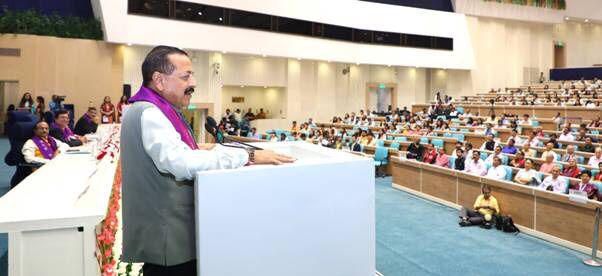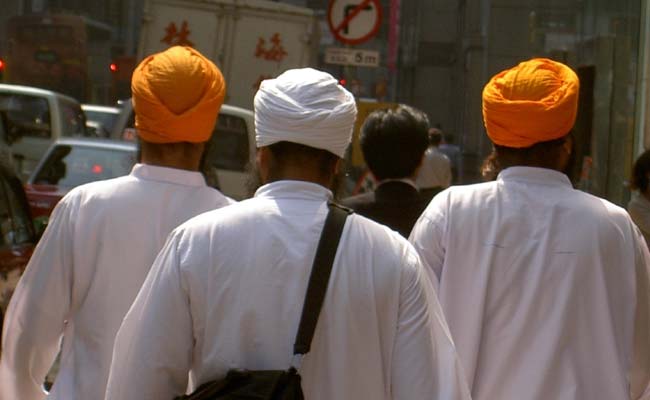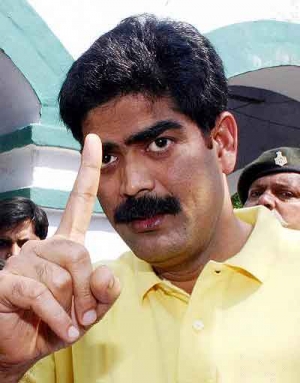Dr. Jitendra Singh Highlights India’s Transformation in Medical Education and Healthcare Accessibility

New Delhi | October 25, 2025 Union Minister Dr. Jitendra Singh emphasized the remarkable evolution of India’s medical education and healthcare systems over the past decade, describing it as a transformative journey toward accessibility, affordability, and inclusivity. Speaking at the 54th Foundation Day and Convocation Ceremony of the University College of Medical Sciences (UCMS), University of Delhi, Dr. Singh conferred degrees upon undergraduate and postgraduate students, urging them to merge compassion with innovation in their medical practice. Dr. Singh noted that India’s healthcare and education sectors have seen unprecedented expansion under recent reforms. He highlighted that the number of undergraduate medical seats in the country has risen from approximately 45,000 a decade ago to nearly 1.5 lakh today, making medical education more accessible to aspiring students, including women. The establishment of new AIIMS institutions and medical colleges across India, he said, has democratized healthcare education and improved regional access to quality training. The minister underscored the government’s threefold focus on accessibility, affordability, and availability in healthcare delivery. He credited initiatives like Ayushman Bharat and Jan Aushadhi Kendras for redefining India’s healthcare model, ensuring affordable treatment and expanding insurance coverage to include pre-existing conditions — a move he described as one of the most humane policy decisions in public health. Dr. Singh also spoke about India’s growing global stature in biotechnology and life sciences. He cited milestones such as the development of the world’s first DNA-based COVID-19 vaccine, an indigenous HPV vaccine for cervical cancer, and successful gene therapy trials for haemophilia — published in the New England Journal of Medicine. He further highlighted the discovery of India’s first indigenous antibiotic, Nafithromycin, as a major step in medical innovation. “India now supplies vaccines to over 200 countries,” Dr. Singh stated, adding that such achievements reflect the country’s rise as a global healthcare leader. He called upon institutions like UCMS to enhance collaboration with private enterprises and research organizations, emphasizing that “the era of working in silos is over.” According to him, partnerships between academia, industry, and government labs will define the next phase of India’s medical and scientific advancement. During the ceremony, a commemorative souvenir marking UCMS’s 54-year legacy was released, showcasing its contributions to education, research, and community healthcare through its collaboration with GTB Hospital. Awards and medals were presented to students and faculty members for their academic and research excellence. Addressing modern medical challenges, Dr. Singh noted that today’s doctors must manage both communicable and non-communicable diseases in an ageing population while adapting to rapid technological change. He highlighted the growing role of artificial intelligence in healthcare, saying AI’s ability to communicate empathetically with patients represents a powerful blend of technology and humanity. Concluding his address, Dr. Singh told the graduates that they are the torchbearers of a healthier, self-reliant India. “Those receiving their degrees today will be at the forefront of medical innovation when India celebrates 100 years of independence in 2047,” he said. “You are the architects of a new era in healthcare, where empathy meets excellence.” Shaping the Future of Healthcare Union Minister Dr. Jitendra Singh celebrated India’s strides in medical education and healthcare at UCMS’s 54th Foundation Day, highlighting a decade of transformation that has made healthcare more accessible and affordable. He noted the expansion of medical seats, the rise of new AIIMS institutions, and breakthroughs such as India’s first DNA vaccine and HPV vaccine. Emphasizing compassion and innovation, Dr. Singh urged young doctors to embrace technology like AI while upholding empathy in patient care. He called the graduates the architects of a self-reliant India’s healthcare future as the nation advances toward 2047.




